 W
WLieutenant General Sir Warren Hastings Anderson was Quartermaster-General to the Forces.
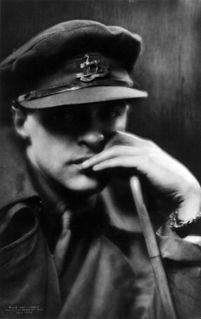 W
WCaptain Charles Bruce Bairnsfather was a prominent British humorist and cartoonist. His best-known cartoon character is Old Bill. Bill and his pals Bert and Alf featured in Bairnsfather's weekly "Fragments from France" cartoons published weekly in The Bystander magazine during the First World War.
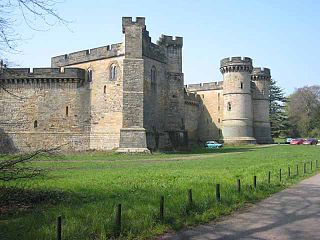 W
WSir Henry Belasyse, also spelt Bellasis, was an English military officer from County Durham, who also sat as MP for a number of constituencies between 1695 and 1715.
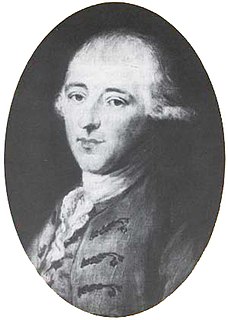 W
WPierce Butler was an Irish-American South Carolina rice planter, slaveholder, politician, an officer in the Revolutionary War, and one of the Founding Fathers of the United States. He served as a state legislator, a member of the Congress of the Confederation, a delegate to the 1787 Constitutional Convention, and a member of the United States Senate.
 W
WHugh Colvin VC was an English recipient of the Victoria Cross, the highest and most prestigious award for gallantry in the face of the enemy that can be awarded to British and Commonwealth forces.
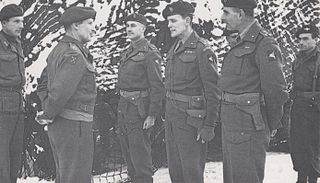 W
WLieutenant General Sir Napier Crookenden was a British Army General who reached high office in the 1960s.
 W
WGeneral Sir David Dundas was a British Army officer who fought in the Seven Years' War and French Revolutionary Wars, wrote important texts on the Principles of Military Movements and then served as Commander-in-Chief of the Forces from 1809 to 1811.
 W
WGeneral Sir George de Lacy Evans was a British Army general who served in four wars in which the United Kingdom's troops took part in the 19th century. He was later a long-serving Member of Parliament.
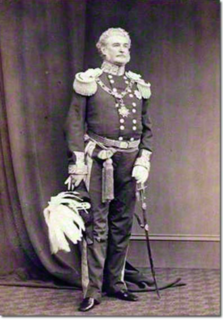 W
WLucius Bentinck Cary, 10th Viscount Falkland GCH, PC, styled Master of Falkland until 1809, was a British colonial administrator and Liberal politician.
 W
WGeneral Thomas Gage was a British Army general officer and colonial official best known for his many years of service in North America, including his role as British commander-in-chief in the early days of the American Revolution.
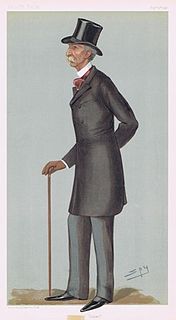 W
WLieutenant-General Julian Hamilton Hall was a British Army officer who became General Officer Commanding North Western District.
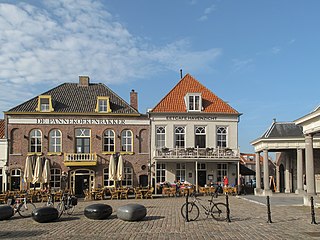 W
WLieutenant General Roger Handasyd, also spelt Handaside, 11 March 1689 to 4 January 1763, was an English military officer and Member of Parliament for different seats between 1722 and 1754.
 W
WMajor-General Thomas Handasyd, also spelt Handasyde, was an English soldier from Northumberland who served in the armies of William III and Queen Anne from 1674 to 1710. He was military commander and Governor of Jamaica from 1702 to 1711.
 W
WGeneral Sir Charles Henry Pepys Harington, was an officer in the British Army. He served in the British Expeditionary Force and in Normandy during World War II. He was later Commander-in-Chief of the three-service Middle East Command from 1963 to 1965, based at Aden. He ended his military career as Chief of Personnel and Logistics at the UK Ministry of Defence from 1968 to 1971.
 W
WSir Arthur Adlington Haworth, 1st Baronet, was a British businessman and Liberal politician.
 W
WMajor Henry Kelly VC, MC & Bar was an English recipient of the Victoria Cross, the highest and most prestigious award for gallantry in the face of the enemy that can be awarded to British and Commonwealth forces.
 W
WWilliam Hulme Lever, 2nd Viscount Leverhulme, DL, was the son of William Hesketh Lever and Elizabeth Ellen, daughter of Crompton Hulme of Bolton.
 W
WJosiah Martin was an army officer and colonial official who served as the ninth and last British governor of North Carolina from 1771 to 1776.
 W
WSir William Montagu Scott McMurdo was a British army officer who rose to the rank of general. He saw active service in India, helped to run a military railway in the Crimean War and then managed various groups of volunteers working with the army. He was eventually knighted.
 W
WHenry Howard, 7th Duke of Norfolk, KG PC Earl Marshal was an English nobleman, politician, and soldier. He was the son of Henry Howard, 6th Duke of Norfolk and Lady Anne Somerset, daughter of Edward Somerset, 2nd Marquess of Worcester and Elizabeth Dormer. He was summoned to the House of Lords in his own right as Baron Mowbray in 1678. His unhappy marriage was a subject of much gossip, and ended in divorce.
 W
WGeneral Charles O'Hara was a Portugese-born Irish-British military officer who served in the Seven Years' War, American War of Independence, and French Revolutionary War, and later served as Governor of Gibraltar. During his career O'Hara personally surrendered to both George Washington and Napoleon Bonaparte. He gives his name to O'Hara's Battery in Gibraltar.
 W
WBrigadier-General Thomas Paget was a British Army officer and politician who sat in the House of Commons from 1722 to 1727. He was the ancestor of the Paget family, Marquesses of Anglesey.
 W
WGeneral Sir John Lysaght Pennefather GCB was a British soldier who won two very remarkable victories. First, at Meanee, India, where it was said that 500 British soldiers defeated 35,000 Indians. Second, at the Battle of Inkerman on 5 November 1854 during the Crimean War, where he commanded the 2nd Division, a force of 3,000 soldiers who fought in the fog and played a key role in the defeat of 35,000 Russians.
 W
WLieutenant-General Arthur Ernest Percival, was a senior British Army officer. He saw service in the First World War and built a successful military career during the interwar period but is most noted for his defeat in the Second World War, when he commanded British Commonwealth forces during the Japanese Malayan Campaign and the subsequent Battle of Singapore.
 W
WMajor-General Thomas David Pilcher, CB was a British Army officer, who commanded a mounted infantry unit in the Second Boer War and the 17th (Northern) Division during the First World War, before being removed from command in disgrace during the Battle of the Somme.
 W
WAndrew Rollo, 5th Lord Rollo, was a Scottish army commander in Canada and Dominica during the Seven Years' War, who led the British land forces in the capture of Dominica on 6 June 1761.
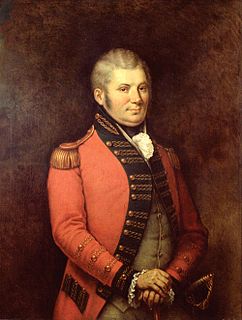 W
WJohn Graves Simcoe was a British Army general and the first lieutenant governor of Upper Canada from 1791 until 1796 in southern Ontario and the watersheds of Georgian Bay and Lake Superior. He founded York and was instrumental in introducing institutions such as courts of law, trial by jury, English common law, and freehold land tenure, and also in the abolition of slavery in Canada.
 W
WRobert Alexander Stewart, is a British politician and Member of Parliament (MP) for Beckenham since 2010. A member of the Conservative Party, he also is a former British Army officer and United Nations commander in Bosnia, commentator, author and public speaker.
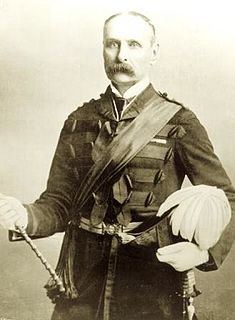 W
WLt. Gen. Sir Charles Tucker, was a British Army officer during the late 19th and early years of the 20th centuries.
 W
WDennis Forwood Vosper, Baron Runcorn TD PC was a British Conservative Party politician.
 W
WGeneral Sir Roger Cochrane Wilson was a senior British Indian Army officer who went on to be Military Secretary to the India Office.